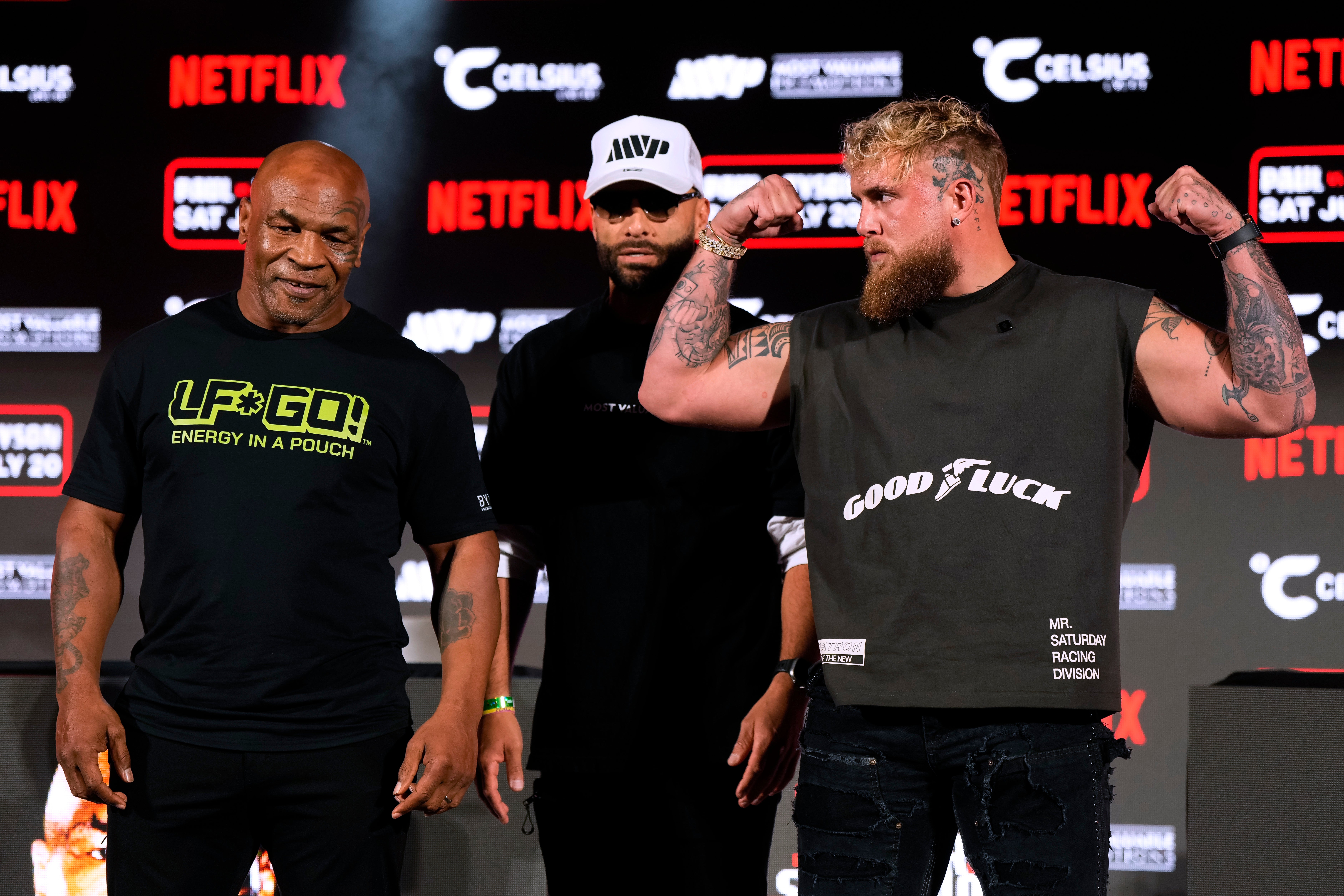“Live on Netflix.” You’ll hear those words a lot this week, as Mike Tyson and Jake Paul meet in one of the most controversial fights in recent memory. But as novel as those words are, they may represent the norm in the coming months and years.
Let’s start with the exposition. Netflix has been a game-changer in the consumption of film and television over the last decade, and the American streaming giant is now seeking to have the same impact in the world of sport. Launched in 1998, Netflix’s first major boom took place between 2007 and 2011, as its subscriber numbers soared from 6m to 23m. But it felt like Netflix really became a staple in living rooms and on laptops worldwide in the mid-2010s, with the release of its first original output: the award-winning, US remake of House Of Cards.
Since then, numerous series like Squid Game, Stranger Things, Money Heist and Bridgerton have further shown Netflix’s ability to produce craved art and content (although the platform’s original films have not impressed in the same way), seeing a growth to 282.7m subscribers as of late 2024.
And Netflix’s next move? Committing to live sport.
The streaming service has dabbled in live content before, but only twice in the sports space. In November 2023, The Netflix Cup saw Formula 1 drivers team with PGA Tour players for some golf ahead of the Las Vegas Grand Prix. Then, in March of this year, Rafael Nadal faced compatriot Carlos Alcaraz in an all-Spanish tennis match-up: The Netflix Slam, also held in Vegas.
The Netflix Cup and Slam felt like trials for something greater. The former did not necessarily excel, reportedly recording 700,000 views between its live stream and the six-week mark thereafter (live content tends to stay on Netflix for posterity). And while there is no detailed data on The Netflix Slam, we know it notched fewer than 1.7m streams on the week that it aired live. But expectations are much higher for Netflix’s next live sports move, and those expectations feel justified.

On Friday, Netflix streams Tyson’s divisive boxing match with Paul – live and exclusively – after months of debates between multiple generations of boxing fans: both the casuals and the hardcores, such is the transcendental nature of Tyson’s celebrity and (whisper it) Paul’s, too. Some fear for Tyson’s health at 58, and four months after he postponed the contest due to a health scare on a plane; others say Paul, 27, is the one who needs to worry, though the YouTuber has performed adequately in building a 10-1 record in boxing.
The fight will be available to all Netflix subscribers, rather than airing on pay-per-view, which immediately marks a move away from the typical boxing model. In the UK, fight fans have needed subscriptions to Sky Sports, TNT Sports and DAZN in recent years to keep up with all the major match-ups, with additional pay-per-view fees often involved. In the US, the same has been true across ESPN and Fox for the most part.
Yet Netflix tends to be a staple subscription in most homes, and that fact – coupled with the intergenerational interest in Paul vs Tyson – is expected to bring a viewership in the double-digits of the millions. Paul predicts 25m viewers, and even if he is wrong, the reality will surely still be unprecedented; the most-watched boxing match of all time was Floyd Mayweather’s 2015 bout with Manny Pacquiao, which drew 4.6m pay-per-view buys in the US.
And if The Netflix Cup and Slam felt like trials, Paul vs Tyson feels like something more. It feels like it could open the floodgates, and there is evidence to back that up.

On Christmas Day, two NFL games (the Chiefs vs Steelers and Ravens vs Texans) will stream live on Netflix globally, as will one or more games on 25 December 2025 and 2026 as part of a three-year deal. And from January 2025, WWE will move to Netflix and stream multiple episodes live every week, as part of a 10-year deal. Furthermore, WWE is now under the same parent company as the UFC (mixed martial arts’ flagship promotion), and the UFC is currently renegotiating its TV rights. Netflix has almost certainly been involved in talks with the UFC, and don’t be surprised if the platform beats out competitors in the race for a deal.
Either way, Netflix’s involvement in boxing makes monetary sense for the sport. Paul has claimed he will make $40m for the fight, which is being promoted by his own company, while Tyson is reportedly earning $20m. Even in the biggest boxing events, such sizeable purses are not as common as one would think, with pay-per-views at times feeling overpriced and outdated, and with those costs factoring into what fighters can earn.
Netflix has 282.7m subscribers, all paying a monthly minimum of £4.99, $6.99, and equivalent sums – and with memberships of up to £17.99/$22.99 per month. It is a vast pool into which Netflix can dive, in order to deliver major fights. In that sense, Friday may well offer a glimpse into the future.
#Jake #Paul #Mike #Tyson #Netflix #fight #means #future #live #sport

















